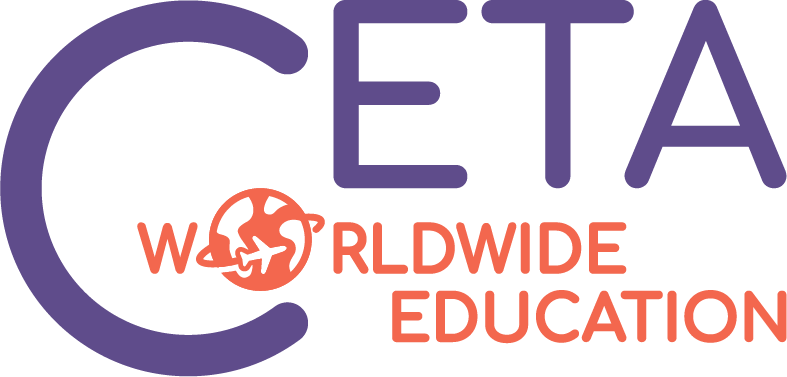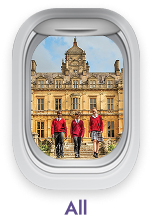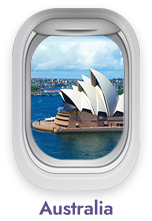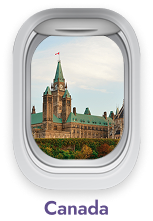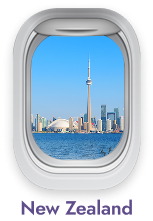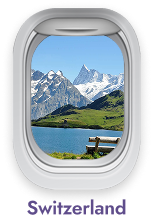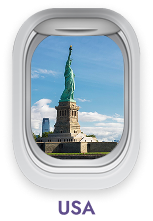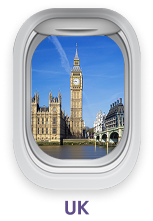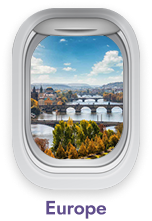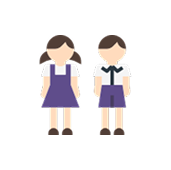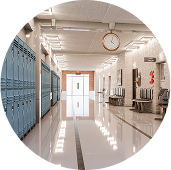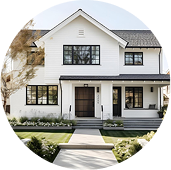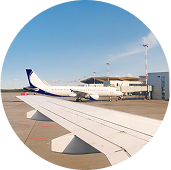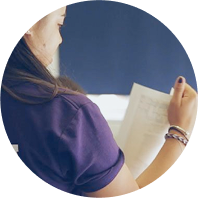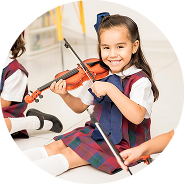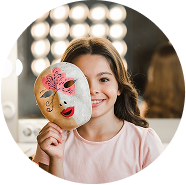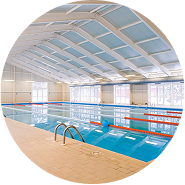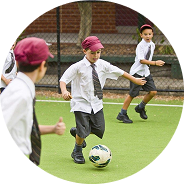Study in Australia
Study secondary school in Australia through a high-quality education system that prepares students for top universities worldwide. With a wide selection of public and private schools located in safe, welcoming cities, you can find the perfect fit no matter where you choose to live. CETA is here to guide you through every step of the process, making studying in Australia easy and ensuring you feel confident from day one.
Why?Study in Australia
Australia offers a safe and welcoming environment ideal for students of all ages
Its cities consistently rank among the most livable in the world
Student visas usually cover the entire duration of study, eliminating the need for annual renewal.
Flexible curricula provide both academic and vocational pathways tailored to each student’s strengths.
During school breaks, students can legally undertake internships or part-time work.
Studying in Australia increases opportunities for admission to top universities worldwide
There is a variety of school types to choose from, including private, public, and Catholic schools
Starting costs are less than one million baht per year
Parents can live in Australia with Guardian Visas or parent visas to support their children.
Recommended Starting Age
Secondary school in Australia typically begins at age 13, starting from Year 8 and above
Academic Term Schedule
Semester 1
- Term 1: Late January – February
- Term 2: Mid-April
Semester 2
- Term 3: Late July
- Term 4: Early October
Education Curriculum in Australia
Australia offers a diverse range of education curricula designed to meet the needs of both local and international students. Each state and territory has its own education authority responsible for managing the curriculum and issuing graduation certificates.
State / Territory | Education Authority | Graduation Certificate |
|---|---|---|
New South Wales | New South Wales Education Standards Authority (NESA) | Higher School Certificate (HSC) |
Victoria | Victorian Curriculum and Assessment Authority (VCAA) | Victorian Certificate of Education (VCE) |
Queensland | Queensland Curriculum and Assessment Authority (QCAA) | Queensland Certificate of Education (QCE) |
Western Australia | School Curriculum and Standards Authority (SCSA) | Western Australian Certificate of Education (WACE) |
South Australia | SACE Board of South Australia | South Australian Certificate of Education (SACE) |
Tasmania | Office of Tasmanian Assessment, Standards and Certification (TASC) | Tasmanian Certificate of Education (TCE) |
ACT | ACT Board of Senior Secondary Studies (BSSS) | ACT Senior Secondary Certificate |
Northern Territory | Northern Territory Board of Studies (NTBOS) | Northern Territory Certificate of Education (NTCE) |
Alternative Curricula in Australia
- The IB Programme (International Baccalaureate Organisation – IBO) is globally recognized and focuses on developing well-rounded skills, including academic excellence, critical thinking, cultural understanding, and deep learning. The IB Diploma Programme (IBDP) is designed for students aged 16–18 and prepares them for university studies. Students are required to study 6 subjects from 6 different knowledge areas, alongside completing three core components: Theory of Knowledge (TOK), Extended Essay (EE), and Creativity, Activity, Service (CAS).
- The VET (Vocational Education and Training) program focuses on developing specific career skills through practical, hands-on learning rather than theory. Students learn directly from industry experts and gain real work experience. Some VET courses can serve as pathways to undergraduate university studies in Australia. Examples of VET fields include Cookery, Hospitality, and other areas tailored to students’ interests, preparing them for future careers.
Accommodation Options for International Students
Boarding House
Accommodation provided by the school offers convenience and a secure environment.
Host Family
Live with a local Australian family to immerse yourself in the culture and enhance your language skills.
Guardian
For students accompanied by relatives or legal guardians residing in Australia to provide supervision and care.
Pathway to Studying Secondary School Abroad
CETA provides full guidance at every step from planning to graduation
“With no service fees”
Plan
CETA helps plan the education journey and choose the right school.
Apply
CETA assists with school applications, arranges placement tests, and supports the visa process.
Prepare
CETA provides pre-departure orientation to get students ready before their journey.
Support
CETA stays connected and supports students throughout their studies until graduation.
Types of Secondary Schools in Australia
Government Schools
Most government schools are co-ed and managed by the six Australian states. International students without family in Australia usually stay with a homestay family. These families are chosen and approved by the state government to ensure students are safe and well cared for.
Catholic Schools
Most Catholic schools are co-educational and are managed by religious organizations or Catholic groups. There are also single-sex schools for girls and boys. International students can choose to stay with a homestay family or live in boarding houses (if available).
Private Schools
Private schools include co-educational, boys’ schools, and girls’ schools. Students can choose to stay with a homestay family or live in a boarding house.
Recommended Australian Secondary Schools
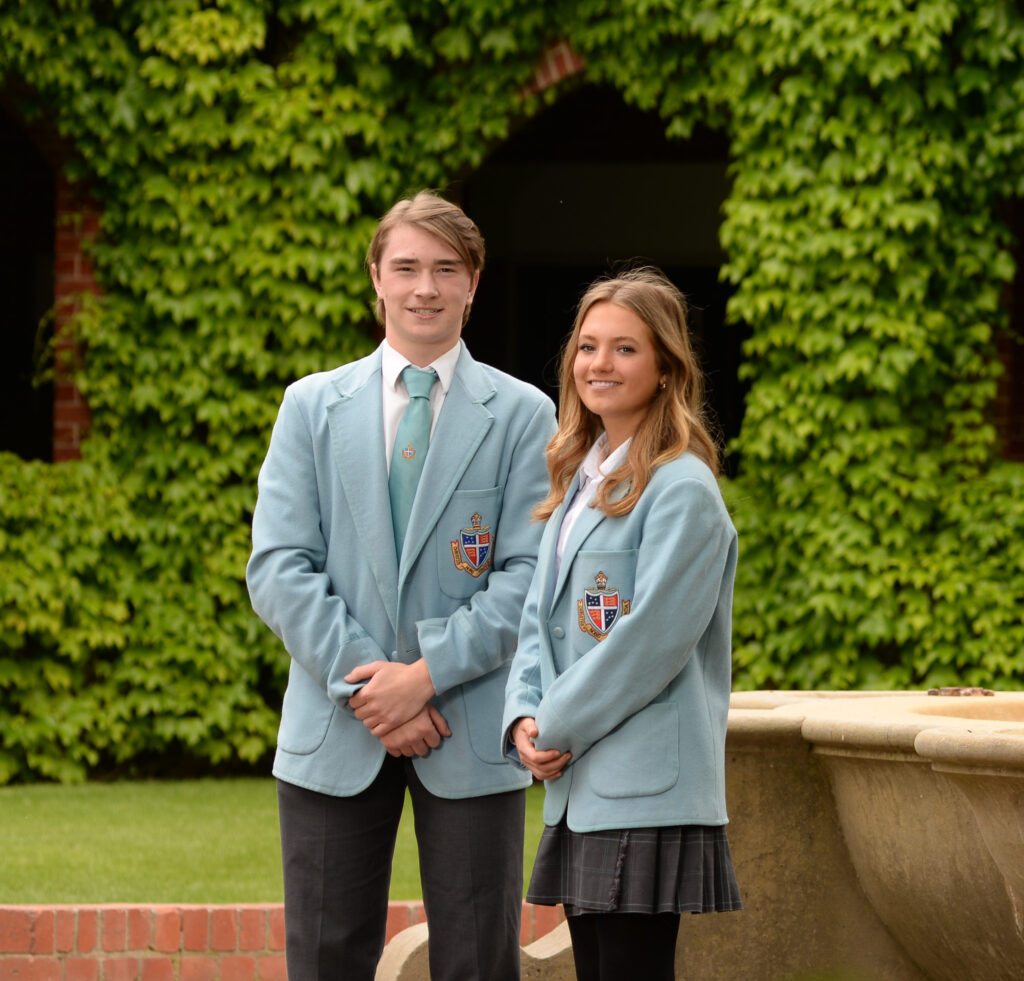
Geelong Grammar School
- Geelong, Victoria, Australia
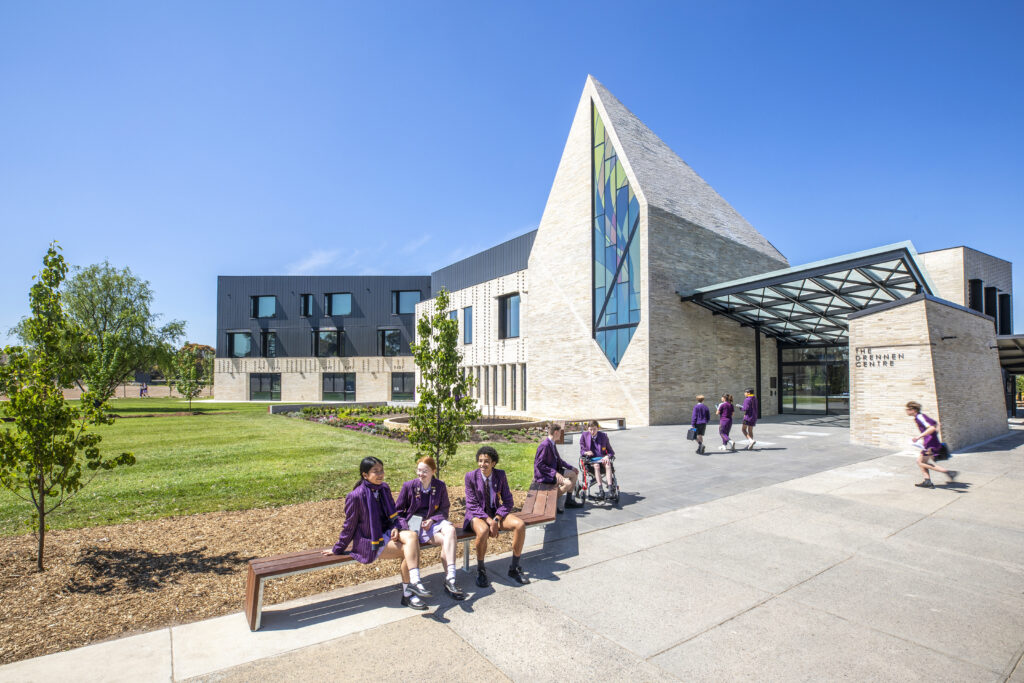
Wesley College – Melbourne
- Melbourne, Australia
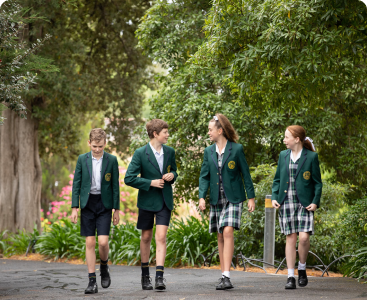
Mercedes College
- Adelaide, Australia
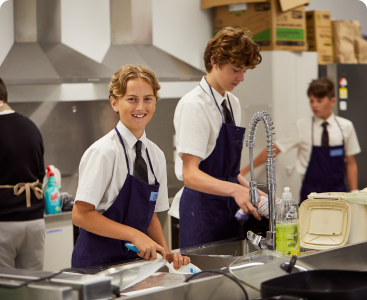
The Hutchins School
- Hobart Tasmania, Australia
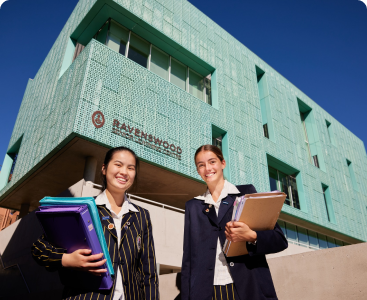
Ravenswood School for Girls
- Gordon, Australia
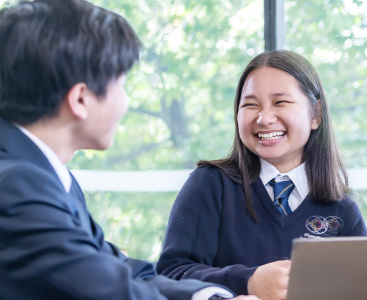
South Australian Government Schools
- Adelaide, Australia
School Type
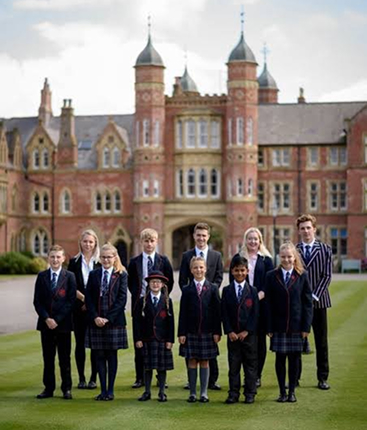
Elite
World-renowned leading schools with a long-standing reputation for academic excellence, extracurricular achievements, and producing successful alumni across diverse fields.

Top Academic
Schools with a strong academic foundation that prepare students for admission to leading global universities

Sports
Schools with outstanding sports programs, full athletic facilities, and dedicated Sports Academies that support students with athletic talent and potential

Music
Schools with strong music programs offering high-quality curricula, hands-on learning, and performance opportunities both on and off campus

Performing Arts
Schools with strong programs in drama, dance, and vocal performance, designed to develop creativity, confidence, and self-expression

Arts
Schools with outstanding programs in painting, sculpture, and visual design, offering a wide range of creative activities and well-equipped art facilities.
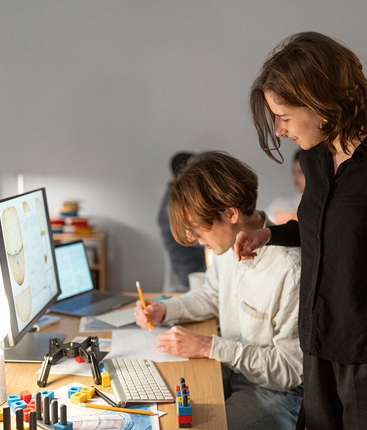
Design & Technology
Schools that focus on developing skills in design, innovation, and technology, preparing students to thrive in a world of creativity and invention.
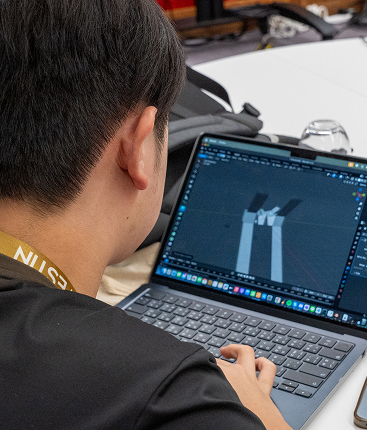
Computer science
Schools with strong programs in computer science, programming, and digital technology, equipped with modern tools and learning environments to support future tech innovators.

STEM
Schools with strong academic programs in Science, Technology, Engineering, and Mathematics, designed to build problem-solving skills and prepare students for future careers in innovation and discovery.

STEAM
Schools that integrate the arts into Science, Technology, Engineering, and Mathematics to foster creativity alongside strong analytical and technical skills.

Cookery
Schools specializing in culinary education, offering hands-on and theory-based programs that teach essential techniques used in the food and hospitality industry.

Hospitality
Schools offer professional programs in hospitality, hotel management, and tourism, with hands-on training across all areas of the industry.
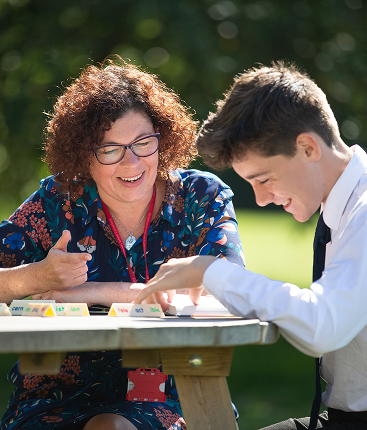
Special Needs
Schools that focus on individualized development, providing tailored support to meet the unique learning needs of students with special educational requirements.

University Pathway
Schools focused on developing strong academics, well-rounded experiences, and personalized university planning to ensure student success.

Business
Schools that emphasize developing business and management skills through programs in administration, marketing, and entrepreneurship.
Discover the Right School
Top 5 Cities to Study in Australia
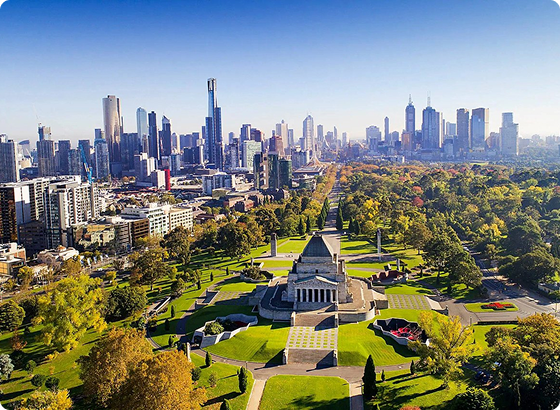
Melbourne, Victoria
- A world-class education hub with a strong academic reputation.
- Known for its rich cultural diversity and excellent public amenities.
- Consistently ranked as one of the world’s most liveable cities.
- A large city with plenty of activities—safe, vibrant, yet not overcrowded.
- Enjoys cool and comfortable weather for most of the year.
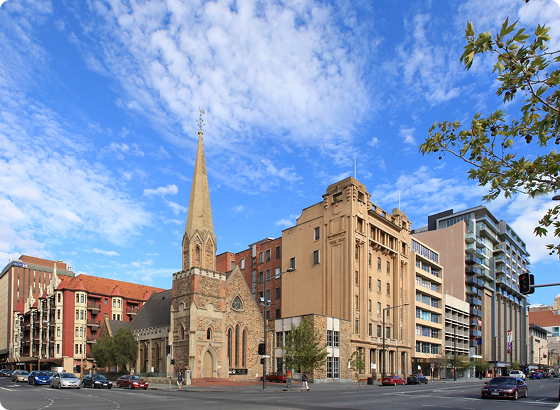
Adelaide, South Australia
- A small, quiet city that is safe and uncrowded.
- Offers a wide range of schools with excellent learning facilities.
- Known for its friendly and welcoming community.
- Lower cost of living compared to other major Australian cities.
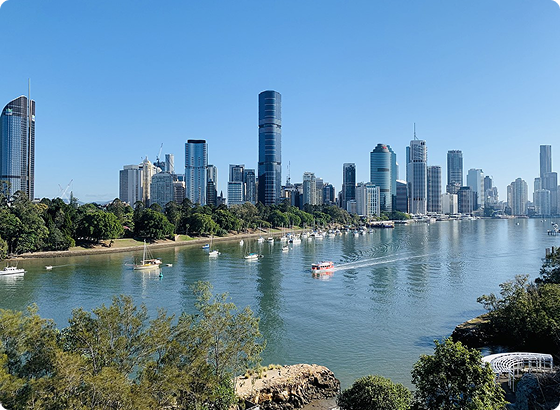
Brisbane, Queensland
- Australia’s third-largest city with a vibrant and dynamic atmosphere.
- Warm weather similar to Thailand, making adaptation easier.
- Home to top schools that excel in both academics and sports.
- Plenty of opportunities for outdoor activities and exploration.
- A great environment for learning and living.
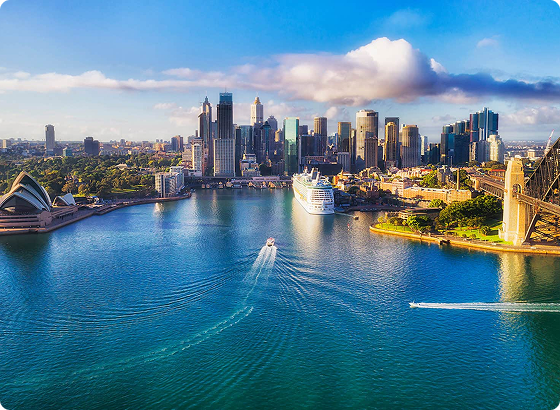
Sydney, New South Wales
- Australia’s economic and financial hub.
- Offers a wide range of leading boarding schools to suit different student needs.
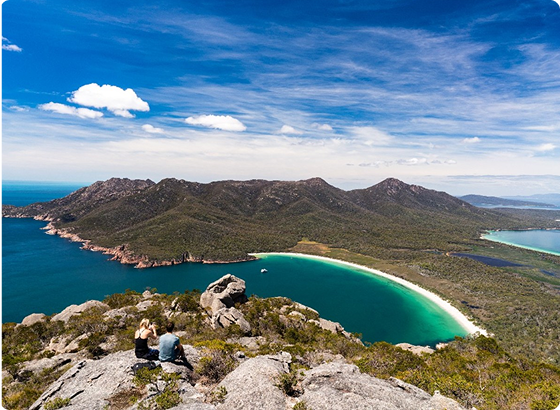
Hobart, Tasmania
- Surrounded by stunning nature and a peaceful atmosphere.
- Home to several top-quality boarding schools.
- Affordable living with excellent value and quality education.
- Friendly, supportive student community.
- Ideal for students seeking a calm environment close to nature.
Costs of Studying Secondary School in Australia
The estimated initial expenses for studying in Australia vary by type of school as follows:
Government School
- Tuition Fees: Approximately 360,000 – 650,000 THB per year
- Accommodation Fees: Staying with a Host Family (Homestay) costs about 270,000 – 450,000 THB per year
Catholic School
- Tuition Fees: Approximately 480,000 – 880,000 THB per year
- Accommodation Fees: Choice between Host Family (Homestay) or Boarding House
- Host Family: Around 400,000 – 500,000 THB per year
- Boarding House: Around 480,000 – 600,000 THB per year
Private School
- Tuition Fees: Approximately 580,000 – 1,300,000 THB per year
- Accommodation Fees: Choice between Host Family (Homestay) or Boarding House
- Host Family: Around 400,000 – 500,000 THB per year
- Boarding House: Around 600,000 – 1,300,000 THB per year
Note: The above costs do not include other expenses such as airfare, visa fees, health insurance, or personal expenses.
Data as of June 2025. Costs may vary with exchange rates. Please check with CETA for the latest updated information.
Things to Know Before Studying in Australia
In addition to information about the education system and secondary schools in Australia, there are other important details you should know before studying abroad in Australia, including the following:
Geography
Australia is the world’s 7th smallest continent and the largest island in the Southern Hemisphere, located southeast of Thailand. It features vast deserts, stunning coastlines, pristine white beaches, lush rainforests, and tropical wet forests, which remain some of the most natural and abundant in the world.
Travel from Thailand
Australia has several international airports, including Sydney, Melbourne, Brisbane, and Adelaide. Students can fly with various airlines such as Thai Airways, Singapore Airlines, British Airways, and Qantas.
Climate
Australia’s climate varies by state, ranging from tropical to temperate. Tasmania has an average annual temperature of 12–13°C, with winter lows between 6°C and 14°C. The hottest region is the Northern Territory, where temperatures can reach around 34°C. The country experiences four seasons:
- Summer: December – February
- Autumn: March – May
- Winter: June – August
- Spring: September – November
Time Zones
Australia has three time zones:
- Australian Eastern Standard Time (AEST) — including Australian Capital Territory, New South Wales, Queensland, Tasmania, and Victoria; 3 hours ahead of Thailand
- Australian Central Standard Time (ACST) — including South Australia and Northern Territory; 2.5 hours ahead of Thailand
- Australian Western Standard Time (AWST) — including Western Australia; 1 hour ahead of Thailand
Culture and Lifestyle
With about one in five Australians born overseas, Australia is a multicultural society celebrating diverse festivals such as Chinese New Year, Songkran, and Loy Krathong. Australians enjoy a high quality of life, clean environment, excellent healthcare, and education systems, making the country one of the most livable in the world.
Education System
Australia’s well-developed education system boasts one of the highest enrollment rates globally. Australians typically receive longer primary and secondary education compared to countries like Japan, Germany, and the UK. It ranks 4th among the most popular English-speaking destinations for international students.
Electricity and Water
Australia uses 240-250 volts AC at 50 Hz, similar to Thailand, but with a unique three-pin plug (Type I). Students bringing electrical appliances from Thailand will need an adapter, available in both countries. Tap water is clean and safe to drink, with separate taps for hot and cold water. Cold tap water is for drinking, while hot water is generally for cleaning.
Religion
Most Australians are Christian; however, Australia guarantees freedom of religion, with Buddhists, Muslims, Jews, and others also present. Some states have Thai Buddhist temples in cities like Melbourne, Sydney, Canberra, and Adelaide.
Government and Politics
Australia is a federation with three levels of government: federal, state, and local. It has a stable democracy that blends British and North American liberal traditions with distinct Australian characteristics.
Testimonials
ผมกล้าพูดได้เลยว่าการเรียนต่อต่างประเทศทำให้เรามีในสิ่งที่เด็กนักเรียนไทยหลายคนไม่มี นั่นคือประสบการณ์การใช้ชีวิต ทัศนคติที่เปิดกว้าง ความสามารถในการปรับตัว และที่สำคัญคือความเป็นผู้ใหญ่
Atom, Switt Promsrisawat - Dean Close, UK
ผมเลือกที่จะย้ายไปอังกฤษ เพราะว่าผมรู้สึกว่าอยู่สิงค์โปร์ วัฒนธรรมคือต้องเรียน24ชั่วโมง เรียนหนักมาก ผมก็เลยอยากไปประเทศที่โรงเรียนเขาสอนอีกสไตล์นึง สไตล์ที่เคร่งเครียดน้อยลง มีกิจกรรมร่วมด้วย อังกฤษก็เป็นทางเลือกที่ดี ที่ CETA เขาแนะนำมาให้ ตอนแรกก็สมัครที่หลายที่เหมือนกัน สุดท้ายที่เลือกโรงเรียน Cardiff เพราะว่า ranking เค้าดี ก็ถ้าเกิดสมัครไปผมก็หวังจะตามไปมหาวิทยาลัยที่ดีเหมือนกัน ก็เห็นได้ชัดครับว่าคิดถูกแล้ว
Boss, Suphasan Tangtokit - Cardiff Sixth Form College, UK GCSE - A-Level
การไปเรียนต่อที่ Firbank Grammar School คือจุดเปลี่ยนในชีวิตเลย เหมือนเราได้เปิดโลกทั้งเรื่องของการเรียน วัฒนธรรม และการปรับตัว ถือเป็นการเตรียมตัวเข้ามหาวิทยาลัยที่ Smooth มาก ๆ ค่ะ ต้องขอบคุณพี่ ๆ CETA ที่ช่วยให้ขั้นตอนการไปเรียนต่อออสเตรเลียผ่านไปได้อย่างราบรื่นค่ะ
Titang, Natcha Limpianunchai - Firbank Grammar School, Australia
การมีตัวแทนที่ดี อย่าง CETA ทำให้เราอุ่นใจมาก เพราะว่าเวลาเรามีปัญหาหรือว่าการเดินทาง การติดต่ออะไรที่มีปัญหา เราแค่ทักถาม CETA ทาง CETA ก็จะตอบกลับมาทันทีค่ะ
คุณพ่อคุณแม่ น้องปันปัน
CETA ทำให้เราได้มีโอกาสเข้าไปชมโรงเรียนต่าง ๆ ก่อนที่ลูกจะตัดสินใจเลือกโรงเรียน ซึ่งครอบครัวเราคิดว่ามันสำคัญมาก การที่ลูกได้ไปสัมผัสบรรยากาศก่อนว่าโรงเรียนเป็นยังไง เขาโอเคไหม แล้วได้ตัดสินใจเลือกโรงเรียนด้วยตัวเอง เพราะมันคือความสุขและอนาคตของเขา
คุณพ่อคุณแม่ น้องบอส - Cardiff Sixth Form College, UK GCSE - A-Level
พี่เอาใจใส่มากๆ ครับ ให้ความช่วยเหลือเวลามีปัญหา ไม่ว่าจะเป็นเรื่องการเรียนหรือการใช้ชีวิต
SunSun- Mercedes College, Australia
การได้เรียนมัธยมที่ออสเตรเลียทำให้ผมไม่กลัวความผิดพลาดครับ เพราะมันทำให้ผมได้เรียนรู้สิ่งใหม่ๆ เสมอ และยังทำให้เป็นคนที่กล้าแสดงออกมากขึ้นด้วย
Sydney - Westminster, Australia
CETA ตอบโจทย์ทุกเรื่องเลยค่ะ ไม่ว่าจะเป็นเรื่องของข้อมูลโรงเรียน หลักสูตร สภาพแวดล้อมในโรงเรียน หรือการทำวีซ่า เรียกได้ว่า CETA เป็นคำตอบทุก ๆ คำถามของคุณแม่ค่ะ
คุณณิชชา นภาอำไพพร - คุณแม่น้องซิดนีย์ และ น้องซันซัน
